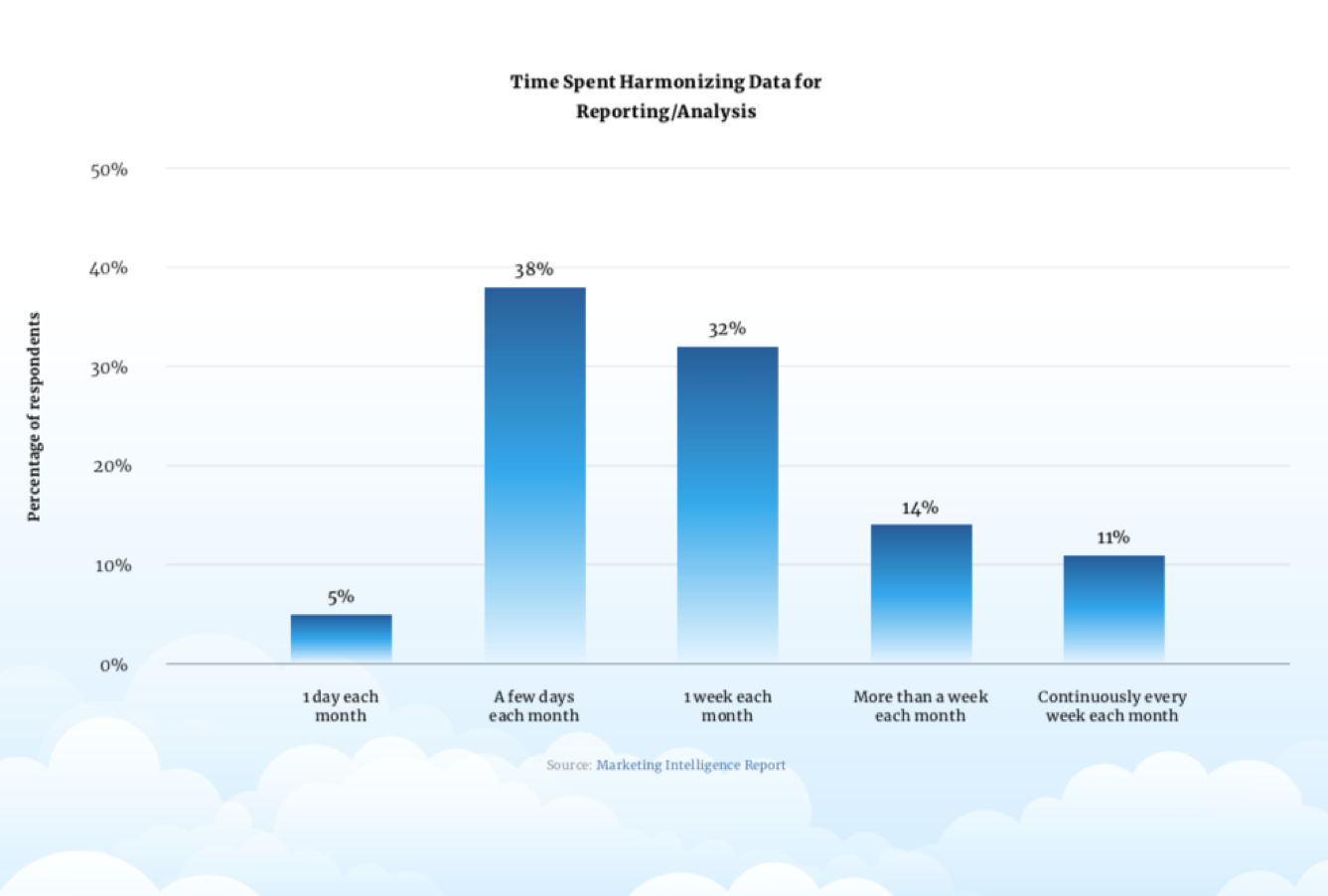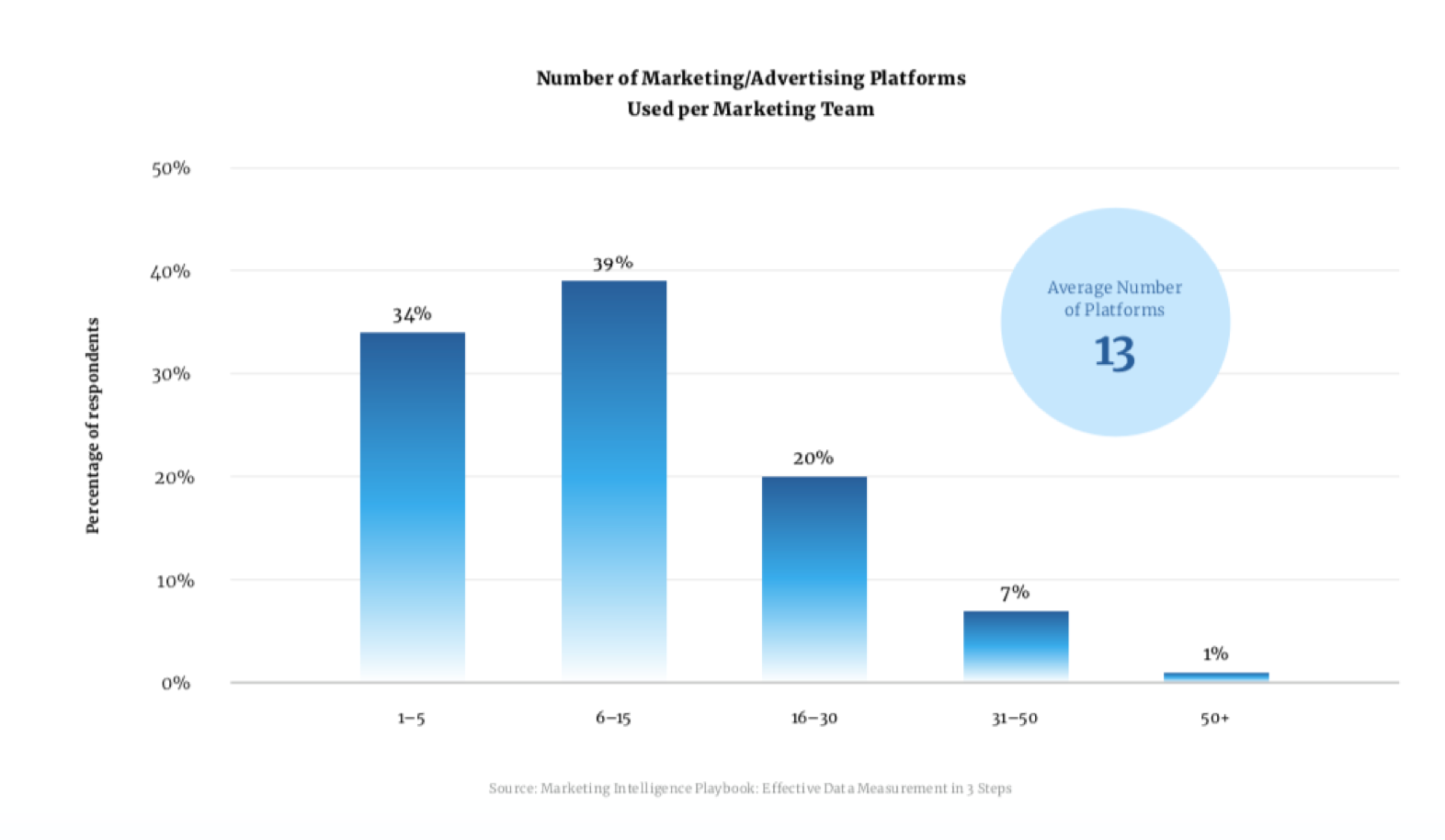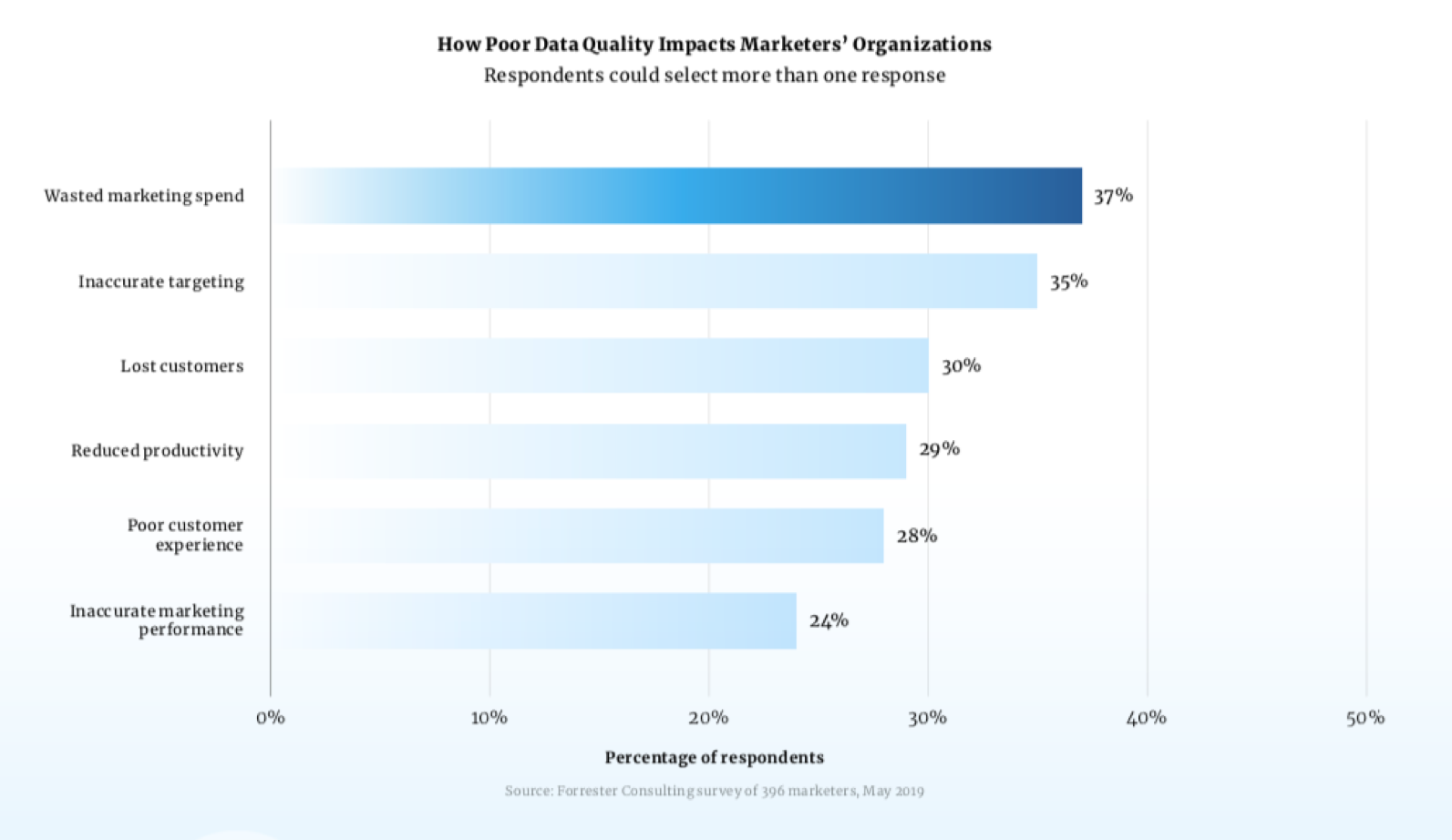
Data-Driven Marketing Measurement Strategy Lights the Path to Certainty
by Grace Dillon on 18th Aug 2020 in Deep Dive
Marketers hold perhaps the most unique position within a company: unlike other divisions, marketing has a vantage point over the ambitions of its business and the sensitivities and needs of its customers. They act as the bridge between business and audience, singularly positioned to craft output that serves consumers and achieves business goals in equal measure. Therefore, it is no exaggeration to say that marketing insights fuel the success of an entire business. This bodes well for companies with an effective strategy for analysing and actioning marketing data, but what about those that don’t?
To put it simply, those without a comprehensive plan for not just collecting and understanding marketing data, but putting the insights it provides to use, will wither. We are in increasingly uncertain and volatile times, with an ongoing pandemic and socio-political unrest that is shaping not just the economy, but consumer sentiment too. We have already seen the power of public opinion, with swathes of brands pulling spend from Facebook in response to its stance on inflammatory content. And with budgets in flux as COVID-19 continues to wreak havoc, firms can’t afford to waste precious money on channels that will ultimately generate little return.
Customers are facing unprecedented change, and their behaviours and expectations are shifting. In order to deliver the most engaging and helpful experiences to customers, marketing teams need to double-down on measuring their tactics, creative, messages and content across all touchpoints. Achieving all of this requires a measurement strategy that is built upon a strong foundation of marketing intelligence and that will inform data-driven decisions that benefit the company’s bottom line and its customers.
With budgets in flux as COVID-19 continues to wreak havoc, firms can't afford to waste precious money on channels that will ultimately generate little return.
Salesforce, Datorama has produced this Deep Dive special in partnership with ExchangeWire. Salesforce, Datorama provides the leading cloud-based, AI-powered marketing intelligence and analytics platform for enterprises, agencies, and publishers. Marketers use Salesforce, Datorama to bring together all of their data and take action on insights, optimising every marketing investment and activity. More than 3,000 leading global agencies and brands — including PepsiCo, Ticketmaster, trivago, Unilever, Pernod Ricard, and Foursquare — optimise marketing campaigns, automate reporting, and make data-driven decisions faster with Datorama.
In this DeepDive special:
– An overview of how data and strategy enhance one another
– The value of data, and how brands can optimise it
– How to build an effective marketing measurement strategy
– How AKQA built their strategy with Salesforce, Datorama
Data and strategy – a valuable circle
The importance of a clear strategy to driving growth is two-fold: firstly, having a proper strategy in place gives marketers a clear picture of the possibilities available to them, whether that’s exploring a new channel or homing in on a particular audience segment; and, secondly, it gives them the space to derive and set realistic goals that they can put in place.
However, neither of these things are achievable without a marketing strategy built on a foundation of fresh data upon which relevant insights can be drawn. Data and strategy, therefore, have a symbiotic relationship, with neither one’s true potential able to be fully realised without the other. However, whilst marketers are well aware of the importance of data, many are failing to extract its full value by not having a sufficient measurement strategy in place. This is an issue that is not just costly – both in terms of budgets and resources – but that is keeping companies stuck in a rut.
The way that marketers currently manage their data is one of the biggest inefficiencies that’s stifling their growth. At present, most marketers are having to commit an immense amount of time and resources to just collecting and analysing data. In fact, according to a recent Salesforce Datorama study, “Marketing Intelligence Report: Data, Growth, and the New Marketing Mandate,” which surveyed 150 marketers, marketers are using an average of 13 different marketing platforms and 57% are spending a week or more each month attempting to manually integrate data.

With data arriving in inconsistent forms from disparate sources, it’s not shocking that it takes so much time to organise and interpret. But, as anyone can see, this process is simply inefficient – not only is manual data integration incredibly taxing, but putting the onus of collating copious amounts of data onto employees opens up the risk for all too natural human error. Furthermore, the amount of time it takes to complete manual integration means that even when these different data sets have been unified, the insights that end up being pulled from them are at least somewhat, if not drastically, out of date.

Making data work
An effective strategy for directing and monitoring marketing output requires a consistent supply of fresh, integrated, and legible data. Therefore, firms must reform their current data processes. Only when they have updated how they manage data can they draw the valuable insights needed to identify new goals and track their progress towards them.
The first step a business can take to do this is consolidating its data sources. Firms should look into adopting a single, unified system that will enable them to integrate and analyse all their marketing data in one place. Doing this will not only eradicate the laborious task of manual integration, but will allow companies to get a complete picture of all their marketing efforts as they occur. This holds the dual benefit of allowing marketers to optimise upcoming and ongoing campaigns in real-time whilst also giving businesses an up-to-date picture of their current progress towards their goals. With but almost as many (80%) not having access to daily or real-time reports, implementing processes that provide the very latest information should be a matter of urgency.
With data harmonised in one place, AI-powered insights can also be applied to suggest optimisation tactics for key KPIs, further freeing up marketers to focus on using these more accurate insights to accelerate their progress towards their business goals.
Investment applies monetarily too, and more accurate insights mean that firms will be able to optimise their marketing budget. With a comprehensive understanding of each element of its ad operations, a company can delegate spend according to what will generate the highest yield, meaning that no dollar is wasted.
It is essential that businesses make their marketing measurement strategy available to everyone involved in the company.
However, some firms may not realise that data interpretation is only its most efficient when its findings are shared and incorporated across all areas of the business. As we mentioned at the beginning of this piece, marketers are responsible for bridging the gap between company and consumer: it is up to them to provide the vital information that forms the basis of a firm’s raison d’etre so that the business can collectively set accurate goals that will ultimately achieve growth. Therefore, it is essential that businesses make their marketing measurement strategy available to everyone involved in the company. Unifying data is crucial to embodying this collaboration – using a single platform to collate data and draw insights will make it easier for a business to track their goals, and will enable them to keep key stakeholders in the loop by sharing up-to-date KPI information.
How to build a successful strategy
We have established why reforming the way they handle data is at the heart of building a successful marketing measurement strategy. But how can marketers use this reasoning to build an effective strategy?
There are four actions marketers should take to create an effective measurement strategy – unify their channels; harmonise their data; monitor their progress; and foster collaboration to achieve their goals.
- Unify all the marketing channels
As we’ve touched on above, marketers use many different channels to reach their customers – social media, search, programmatic, and more. With so many and such varied sources, marketing data from each individual channel frequently ends up being isolated, rendering it inaccessible or incomplete.
By unifying these data sources into a single system, companies can get a more substantial and accurate view of customer engagement and campaign successes. Not only will this result in more valuable insights, but it will also give marketers more time to focus on campaign analysis and optimisation by cutting out manual integration.
- Organise and standardise data
In order to draw beneficial insights, marketers must organise and standardise all of the data they collect. With data harmonised in one place, marketers need to create consistent, standardised data sets to guarantee that it is used accurately and consistently.
This is vitally important in ensuring data integrity, which is itself key towards success. Inaccurate data creates huge, costly lags in progressing towards business goals – a Forrester survey reportedly found that 37% of marketers said that poor data quality was responsible for a proportion of wasted marketing spend. With budgets shaken by the ongoing health crisis, marketers simply cannot afford to waste spend – they must, therefore, ensure that every penny is invested in generating the highest yield.
Working from organised and cleansed data sets makes it much easier for marketing teams to record findings and apply insights at scale insights. This in turn will make them better equipped to make innovations and to launch new schemes with confidence.

- Monitor progress
Marketers, like most people within and outside of the ad industry, are operating against a backdrop of radical change. Politics, economics, public health, and social sentiment are all currently experiencing an upheaval in response to the ongoing pandemic and current affairs. Rapid change requires agility, and marketers must be prepared to adapt if they are to successfully plan for and respond to change.
Having the flexibility to adjust their strategies is imperative for marketing teams to be able to not simply survive, but excel amidst uncertainty. Therefore, marketers should take the opportunity to reset their goals and set new targets to keep them on track to achieve them. Teams can use industry standards, competitors’ performances, and/or past performance data as a basis for their new targets. Having defined goals and targets outlining how to achieve them will enable marketers to capitalise off of their marketing intelligence platform’s ability to provide greater insights at speed.
As we have discussed above, getting a true sense of how marketers are progressing towards their goals requires access to real-time performance data. This is reiterated by Salesforce’s finding that 72% of 7,000 high-performing marketers are able to analyse their performance in real time (“State of the Marketing Report”, 6th edition). For those without access to these insights, setting not just realistic, but truly beneficial goals, will be more challenging. Therefore, marketers must ensure that their new strategy is built on a system that provides them with information on their performance in real-time.
- Foster collaboration towards common goals
Many businesses are currently struggling to meet their goals because their teams are too fractured. With ongoing lockdown measures forcing many companies to have to work remotely, the need for alignment is more pressing than ever. Having integrated all their data into a single system, marketers will become equipped to set out their goals and targets using shareable dashboards, making it easier for internal and external stakeholders to work together towards their goals.
The customisable elements of these dashboards will allow teams to home in on specific audiences and channels. This will facilitate more granular analysis and more individualised insights, which will both satisfy the specific interests of different stakeholders whilst allowing for more effective subsequent action.
By taking heed of these considerations and implementing a marketing measurement strategy built on a foundation of fresh, unified data, marketing teams can fortify themselves with the vital insights required to achieve their goals and generate successful outcomes for their customers.
How has implementing a marketing measurement strategy helped?
The story of global design and innovation agency AKQA provides a picture of just how well implementing a data-driven marketing strategy can work. With multidisciplinary experts across strategy, data, media, analytics, and technology and a mission to help clients deliver better results for their customers, AKQA needed a strategy that provided a unified view of their media efforts.
Having a large and diverse client base meant that AKQA was constantly managing extensive amounts of data, and needed to find a way to fully optimise their clients’ campaigns whilst providing full transparency over how they manage their clients’ digital spend. Initially, AKQA’s analytics teams were manually integrating and refining the data they received from numerous sources. These taxing processes cut back on the time the team was able to dedicate to constantly optimising and improving. AKQA needed a solution that would unify swathes of data from multiple brands – with data harmonised within a single platform, the teams would have a complete picture of how to proceed towards key KPIs.
“We needed a tool that could move as fast as our team and help us create better outcomes for our clients,” said Camila Bonfante Pereira, analytics lead at AKQA. And as associate director of operations Andrew York noted “We were still spending a lot of time surfacing the ‘what’ and not spending enough time on the ‘why’.”
AKQA opted to use Datorama’s marketing intelligence solution to address these issues. With an end-to-end solution, the agency was able to consolidate all of their client’s marketing data into a single system of record for analysis and visualisation. Using Datorama’s Media Cost Centre (MCC) and Einstein Marketing Insights (EMI), AKQA was able to realise the full potential of its marketing data to attain growth for their clients.
AKQA used MCC to make media spend more efficient by using connected data to pinpoint the most worthwhile investments and to actualise cost. By unifying media data, AKQA was then able to feed this information into predictive models, helping their teams understand the links between the different levers that impact brands, sales, media efficiencies and key performance indicators in real time.
AKQA opted to use Datorama's marketing intelligence solution to address these issues. With an end-to-end solution, the agency was able to consolidate all of their client's marketing data into a single system of record for analysis and for analysis and visualisation.
AKQA first implemented MCC for one of their largest consumer packaged goods clients, and is now expanding the solution across all other client campaigns. The solution has enabled them to not only optimise campaigns in a far more time-efficient manner, but to also ensure that they work with the highest-quality inventory – AKQA can immediately spot any sites and partners that over-index on fraud, hold them accountable for their practises, and remove any risk to brands by terminating their partnerships with them. Partner efficiency is now measured based on the quality of impressions delivered, and clients only pay for high quality impressions. This has greatly increased the value for clients, giving AKQA a differentiated, competitive advantage as an agency partner.
AKQA simultaneously used EMI to gain advanced AI insights around return on ad spend through Amazon sales, quality CPM, average in-view times, and media returns on ad spend, all through automated data analysis. In doing so, AKQA is now able to locate and view important campaign data in a single handy platform. This makes it easier for the analytics teams to share findings across the business, increasing alignment and driving data-driven transformation.
The results were significant, with AKQA seeing a greater efficiency across its operations. The agency reported a 70% average reduction on time spent producing reports, 66 media plans ingested per quarter across multiple platforms, and the ability to secure refunds against adverts that proved a risk to brand safety. AKQA was able to implement a new marketing measurement strategy that has transformed their operations – by cutting down on manual intervention and increasing speed and accuracy, AKQA is now able to offer their clients a faster and more valuable service.
For more insight into Data Measurement, download Datorama's Marketing Intelligence Playbook here.

 Download Report
Download Report 






Follow ExchangeWire